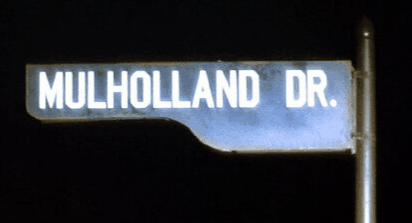Thu 12 – Sat 14 July 2004
Opera House, Manchester, England
Doug Aitken, Matthew Barney and Jonathan Bepler, Tacita Dean, Trisha Donnelly, Olafur Eliasson, Liam Gillick, Dominique Gonzalez-Foerster, Douglas Gordon, Carsten Höller, Pierre Huyghe, Koo Jeong-A, Anri Sala, Tino Sehgal and Rirkrit Tiravanija Co-curated by Hans Ulrich Obrist and Philippe Parreno
Directed by Philippe Parreno
Parachuting into Manchester’s first International Festival, Il Tempo promised to transpose the canon established by curators Hans Ulrich Obrist and Philippe Parreno into a performative setting, giving each artist 15 minutes of fame. Punctuated by Gillick’s Factories in the Snow, a spotlighted ebony piano amidst fake snow, a sentimental prop playing mute master of ceremonies, and Huyghe’s comic skit Hello Zombie, many of the works were characterised by an ambitious desire to counter theatrical expectations. Tino Seghal’s Untitled, wherein the red stage curtains merrily dance around as if auditioning for a part in Bedknobs and Broomsticks, was by far the most successful in this sense, capturing the excitement, promise and enchantment of the opening scene. This difficult act to follow it was equalled by Doug Aitken’s Light Bright Now featuring Midwestern auctioneers rapidly toasting each other.
Just as often, however, Brechtian devices and Cagean tactics fell flat. Those most comfortable with working in gallery environments showed a poor grasp of timing. Many of the events dragged on, exponentially losing impact. Tacita Dean’s name-dropping edition of ‘4’33” (feat. Merce Cunningham) was narrowly beaten to the bottom of the barrel by Gordon’s It’s Only Real When It’s Dark, playing the local nostalgia card with a cheesy rendition of Joy Division’s Love Will Tear Us Apart. The frosty reception this received suggests that a better way of having a regional dialogue would have been to commission a few artists based in the host city.
The majority of the event defamiliarised the ‘conventions’ of theatre in a formulaic way: place the performers amidst the audience (Aitken, Anri Sala, Barney & Bepler), encourage audience participation/inclusion (Olafur Eliasson’s Echo House), deconstruct the institution (Gonzalez-Foerster’s mobilisation of the orchestra as performers) – breaking down the fourth wall to nobody’s great surprise. Much of this seemed stuck in early-90s, eternally returning to clichéd investigations of authorship and quasi-minimalist gestures rather than risking constructing anything richer for fear of accusations of ‘operatics’.
This can’t be said of Matthew Barney and Jonathan Bepler’s Guardian of the Veil by virtue of its eschewal of stoic taste, its embrace of baroque narratives and myth-laden iconography. Less haptic than Barney’s films, the theatrical performance did at least suggest a more thorough engagement with what theatre is capable of and thus ultimately of what visual arts might learn from it.


